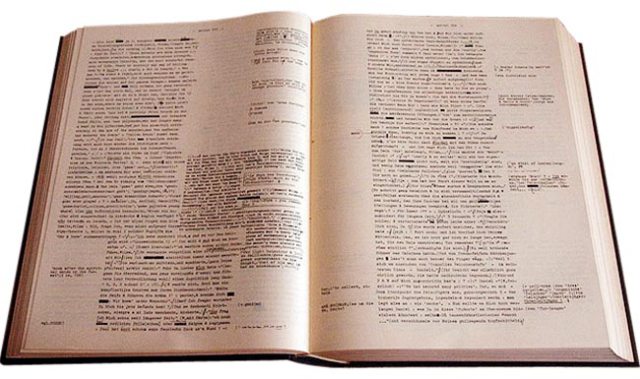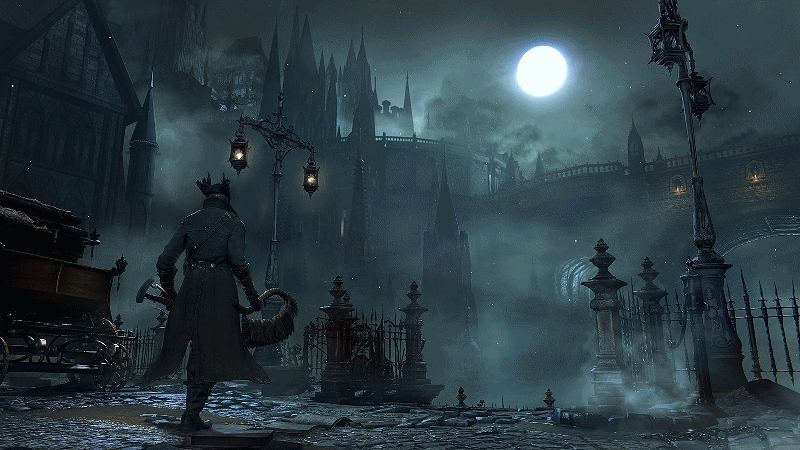THIS IS NOT A REVIEW.
A while ago I read on twitter that this book won the Man Booker International Prize. So, as usual, I check what kind of book it is, what it is about, and the first thing I notice is that it’s REALLY short. 192 pages. Actual wordcount is 51k, meaning 130 pages in a standard format, barely qualifying as a “novel”.
On the Amazon page this book has the longest list of cover blurbs I’ve seen, all singing high praises. What was hinted about the content was also quite intriguing. The idea of metamorphosis seen as an act of rebellion. And besides, this could be a test. A “literary”, prestigious book prize given to a 130 pages book. That means EVERY LINE must be pure literary bliss. If a book is so short and the praises sung so high, then it must be dense and packed with pure awesomeness.
This is not a review because I did not read the whole book. I was only interested in cracking the code. See what it was all about. I started reading the beginning, some 30-40 pages. Then I jumped to the end and read about as much to see where it was going. That legitimated me just to write some snark on the forums: “It has the longest list of cover blurbs in history, I guess that’s because being so short it feels like free money for minimal work.”
I then produced some actual quotes to show what a book that has to be a masterpiece line by line looks like:
“Before my wife turned vegetarian, I’d always thought of her as completely unremarkable in every way.”
“the inferiority complex I used to have about the size of my penis”
“The only respect in which my wife was at all unusual was that she didn’t like wearing a bra.”
“Her voice as it sounded over the phone, always somehow more distinct than in person, never failed to send me into a state of sexual arousal”
“Well, I was in a dream, and I was standing on my head … leaves were growing from my body, and roots were sprouting from my hands … so I dug down into the earth. On and on … I wanted flowers to bloom from my crotch so I spread my legs; I spread them wide … ”
“Can only trust my breasts now. I like my breasts, nothing can be killed by them. Hand, foot, tongue, gaze, all weapons from which nothing is safe. But not my breasts. With my round breasts, I’m okay.”
“She was standing, motionless, in front of the fridge. The potential options all filled me with fear.”
It reads like parody to me. The fact it won the prize, and the literary establishment loves it must mean something. I do believe that part of it is BECAUSE the book is so short. There’s something. There’s a “low hanging fruit” paradigm to it, but it turns out it’s not just about size. It’s about titillating some “themes” and a certain sense of identity. It must be serviceable.
That was enough for me, but then weeks later I saw the book being discussed on SomethingAwful forums and I used the occasion to be the voice outside the chorus, deliberately against the grain, criticizing without any subtlety. Because I wanted to actually engage in a discussion with someone who loved and understood the depth, see the opposite angle. At the same time I was also going to observe myself with a critical eye, but without interfering with the “act”. I’d play the antagonizing voice. See if it was all pretense. All a game of taking sides.
I’m not going to comment on these further observations, only mention that I’m aware of all of it.
—
I skim read it and found the writing dreadful, characterization fake and inch-deep, and actual plot trite and mystified without a single idea that’s worth something.
And the revelation at the end of the book? Are you kidding me?
I’m convinced this book won a prize because it’s so short that they rewarded it because no one wants to work hard anymore. Paid reviewers LOVE this because you can read it in a couple of hours and it feels like FREE MONEY. It’s just a pretense of a book. An imitation of good writing and good plot. And then people love it because they love what some institution tells them to love. The book won a prize, so it must be GREAT.
—
If you think The Vegetarian is about mystery and mystification perhaps you should not skim read it and actually read it.
It wants to imitate that dreamlike, introspective and symbolic atmosphere. I only think it’s dreadful for what it achieves. Symbols are powerful because of what they hide. But being the actual deal here inch-deep, it’s all fluff and mystification. Japanese horror B-movies have more creativity and depth.
The title is of course misleading. It’s not about vegetarianism in ANY way, it’s not even technically correct because she starts already as more like “vegan”. But if they titled the book The Vegan then it would have been even more misleading.
So, it’s just about a very subjective mental illness. The book does a poor job with it. The motivations are fluff. It doesn’t play realistically, and the dreamlike effect is lost because the depth just isn’t there, it’s only imitation of what a million of other books do better.
There are reviewers that TRY to lift it up as a kind of metaphor of Korean culture and society. None of them explain how you could reconcile that theory with a story of very subjective mental illness that has absolutely no point of possible generalization.
It’s a sad story written with the purpose to shock, without ever earning it.
—
Its a commentary on the nature of how human interaction is always in someway based on consumption and exploitation, and how Korean culture is particularly built around women being consumed for the benefit of men. There is an overwhelming feminist perspective in this book you seem to be completely glazing over.
It’s a disservice to feminism. It’s exploitative. It’s hubris. It’s just a representative act. A show with no actual meaning because, as I said, it’s just imitation of an idea the writer thought would get the attention (as I suspect was the purpose of that title). I only find that manipulative in a bad, unsubtle way. It has an agenda and it’s poorly written. Those you cite as important themes are only gross generalizations. The book is unable to earnestly engage with anything.
What surprises me is that very often you find these big prizes to books that are all form and no content. That happens. But this is a special case where the form itself, the writing line by line, is itself so plain and poor. It’s explicitly bad, it’s not like you need to have a sophisticated literary sense to notice.
And it’s impossible EVEN to engage with the characters on a personal level. The woman not only is mentally ill, but she’s completely unaware of everything around her. So whereas if you were mentally ill you’d notice how people react around you, you’d be self conscious, struggle to blend in and fail (and this could be an interesting and worthwhile story to tell). But this woman doesn’t give a damn. She’s ostensibly weird around people, she makes a deliberate exhibition of it. She’s completely, utterly self-absorbed and without a trace of empathy. She’s essentially not-human, because of how cold she is to everything that surrounds her. But then the book EXPLOITS this by making everyone else around her even more implausibly WORSE. So you’d expect the “sane” people to act differently, but nope. Her husband is a piece of shit who has even less empathy and not a single redeeming quality.
That’s exploitative. It’s a carefully picked selection of the worst human beings with the sole purpose to put the protagonist under an excess of negativity, just to justify what happens to her “internally”.
But I don’t want to offend anyone tastes. I explained the motivations why I think this is dreadful. It’s not just a generalization on my part for a book “I didn’t like”. That’s a subjective, legitimate reaction. But I do think this book is objectively terrible. Those are some of the reasons, so you can make your own mind.
I’m not going to try to persuade people that this book is bad. If you like it, all the better.
P.S.
“consumption and exploitation of women for the benefit of men” as a KOREAN culture thing? REALLY?! More like an universal human thing in the last thousands of years. So she played a game on the “metaphor”, consumption = eating. “I don’t like consumption of women, so I stop eating.” Whoa! Booker Prize! This is exactly what I mean with “inch-deep”.
—
because the idealized Korean woman is one who is subdued and complicit in her own abuse.
Yes, I agree with that.
how she was “ideal” to her husband in her total passivity
Yep, the husband being a blatantly piece of shit, and the protagonist made into a convenient symbol. That’s what I call exploitative. The characters are just embodied concepts without any realism and respect.
how a single act of generally meaningless rebellion becomes catastrophic.
But it wasn’t *meaningless* rebellion. It’s self-inflicted pain. That’s why the title is ridiculous. It’s not like she decided to eat “healthily” and started to do something in a different way. The catastrophe is self-inflicted with minimal impact about what happens around herself. It’s more like “doom” and destiny than cause-consequence. Is suicide “meaningless rebellion”?
She’s essentially into self-harm. Being “vegetarian” is utterly misleading unless there’s really someone out there who consider being vegetarian as an act of self-harm. Is self-harm an act of rebellion? I guess it is when recovery is entirely out of the picture. And of course it’s catastrophic, the concept starts that way regardless of what’s around her. She’s trying to kill herself, but of course people around her are so bad that certainly they don’t help.
It’s a legitimately sad story used in an illegitimate exploitative way.
The total point of her passivity is to show the willingness of men to use women for themselves. If she was a more engaged character, not only would the only intellectual base of the plot dissolve, but she would not even be an effective reflection of societal expectations on women.
I still consider this exploitative, convenient (for the book theme) and quite useless as an insightful and meaningful description of society.
And it’s just a tragedy set in motion and described (and made into universal symbol), then you might as well read in a newspaper and don’t need the transformative art of fiction and a novel to do that.
—
a focused meditation on the predatory nature of human relationships.
On one side I considered those relationships utterly implausible, so neither the relationships nor the characters can work for me that way. It’s a twisted, convenient representation, to my eyes.
Yep, I don’t think human relationships work that way, given this context of the story. Even if you take that, it’s superficial. I don’t know how to better say it than repeating endlessly it’s exploitative.
I do see what you mean, and you do see what I mean. The difference is the angle the writer forced on the story is utterly dishonest and artificial to me, so why it turns into that story into the one I described. She wants those themes, but because the characters are so artificial it all falls apart. We interpret things differently because that angle rings false for me.
You buy into that concept and its use, I don’t.
—
I don’t see how the characters are implausible to you. In a patriarchal society aren’t men given the expectation that their worth can be measured by the woman they claim? In that same society aren’t fathers measured by the suitability of their daughters? Aren’t mothers measured by their dedication to their children? Aren’t wives measured by their submission to their husbands?
Plenty of marriages have ended because they became socially inconvenient for one of the partners. Plenty of men have cheated on their wives while sexually and emotionally exploiting their mistresses. Does this make these people monstrous? Probably. Does it make them implausibly monstrous? Not at all.
Yeah, let’s hammer themes into things. You certainly don’t want to use a tiny brush.
So yes, I see those things. I don’t see the hammer as the best tool to represent them.
What particularly about the husband or the brother-in-law comes off as inauthentic to you?
The brother-in-law I can’t comment because I skipped that almost entirely. The rest, also because this book is so thin, events proceed like following this one directional convenient thread. So there’s no depth also because there’s no space. The husband isn’t even in a “relationship”, they are just there as strangers because the writer put them there. Very good writers in so little space would give at least the illusion of a relationship. She doesn’t manage that.
But hey, this husband is so perceptive that he always thought his wife was alright before “turning vegetarian”. The premise already falls apart.
#####
That was the forum conversation. I didn’t want to derail it further.
One aspect I did not comment, not knowing if it was allowed or not to openly discuss the ending, is what I took as the final “revelation”. And it’s something that I see in light of other comments down that forum thread:
Being vegetarian can often be viewed as a rejection of a patriachal society.
My reaction -> “?!”
On one side you have the personal story of this woman and how the people around her react to her metamorphosis (however you interpret it), on the other is the leap of faith of pinning this scene to its universal dimension: “a challenging vision of patriarchy”, “some really complex ideas around feminism”, ” the predatory nature of male and female relations”.
The final revelation of the book is that the woman was abused by her father when she was a kid. This is where it really falls apart for me. It’s a sad book and a sad story and that’s all of it. I cannot read any universal dimension into it because I see the cause so horribly specific. It’s a pure, specific act of violence. That’s something I hinted in my comments above. Writing a novel is a process of transformation and of creation. It’s not just a report. Especially a book that takes that dreamlike angle and wants to elevate it, it needs to feed the metaphor ALIVE. Not kill it. Run with it, not stop it dead.
For me this story has no redeeming quality. I interpret it differently. That poor woman was caged, but not by society outside herself, or horrible people around her. She starts with her cage, feeds it, makes it stronger. If left alone she’d have withered anyway. She is a woman who needs help and she isn’t in any way autonomous to fight her battle about institutions that demand her to behave differently. She hurts herself, first and foremost, even if left alone. Even if her “strange behavior” had been respected. All due to the fact she’s a victim of abuse and can’t see a light out of it. How do you respond to this?
A woman that is seen as broken when autonomous. Because that’s how I take the message of the book: she’s a victim of herself. She can’t function, not as a function of a bigger system, but for herself. Her act of rebellion is against herself. An inability to find herself, recover an identity, tear apart the instrumentality to put together again the broken pieces. Reemerge as a woman instead of a tool and symbol. People around her try to help, but because they are horrible people they only manage to give her another shove. It’s a story of failure where the protagonist is not responsible of that failure, but can only see it passively to its end. Powerless. So is this feminism, really? The fetishization of a broken woman in order to exculpate and cleanse a certain literary establishment that sees itself as better than its peers and so able to separate itself from this harsh judgement?
Fake tears shed for a character turned into a convenient tool.
That a character can be exploited in such a way to turn it into some mythical symbol wielded as a nonspecific protest against society is something that has RITUAL vibes. It’s a human sacrifice. A woman had to be tortured and killed so that we grow more complacent and nothing changes.
The fact that this book KILLS its character to exploit it, a woman with no agency beside hurting herself, actualizes and perpetuates its own crime. It’s not “feminism”, it’s a ghoulish parody the same as Fifty Shades of Grey parodies kinky romance.
(and, what the fuck, Erikson’s Mhybe. Yeah. A woman everyone sees as a tool, shoved down an unavoidable path. A broken woman creates a WORLD. That’s writing as a transformative act.)






